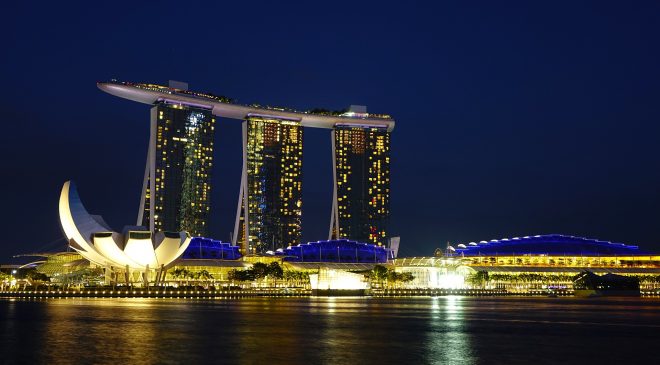Strong focus towards digitalisation support.
The Singapore Government’s 2022 budget will focus keeping the country ahead in the race by investing in various capabilities. These include the digital realm, innovation, and the nations people, stated Minister for Finance Lawrence Wong.
“The Government will strengthen our economy’s digital capabilities by upgrading our broadband infrastructure and investing in future technologies,” stated Minister Wong. “Alongside infrastructure improvements, we will set aside an additional S$200 million over the next few years to enhance schemes that build digital capabilities in our businesses and workers.”
According to Pui Ming Soh Head of Tax, Ernst & Young Solutions LLP alThough the economy is recovering, economic recovery is uneven. Some businesses emerged stronger while others are still struggling to stay afloat.
“A three-pronged plan aims to strengthen our economy’s digital capabilities, encourage and help our local firms to undertake activities and make innovation pervasive, as well as support the productivity drive of local enterprises to grow and expand into overseas markets,” she stated.
PWC believes as Singapore continues to compete for foreign direct investments, it also needs to promote a conducive environment for local enterprises to expand and internationalise.
“Promoting digitalisation and extending SME Grants will help to encourage and drive business and
workforce transformation,” noted PWC. “At the same time, Singapore should consider measures to promote greater vibrancy in capital markets as funding is essential, particularly for start-ups and the overall economic growth.”
Andy Sim, Vice President and Managing Director, Singapore at Dell Technologies
welcomed Singapore’s move to step up efforts to help companies and individuals build digital capabilities and upskill.
“Our increasingly digitised world calls for dedicated measures to shape a resilient workforce that can thrive in the digital future,” he said. “We need to be ready to meet the demands of an expanding digital economy and help our businesses – big and small – to innovate and digitalise, through initiatives like the Grow Digital scheme.”
According to Sim, these efforts must be complemented by tech skills training. The enhanced focus on upskilling mid-career workers announced during Budget 2022 is a step in the right direction – aside from nurturing future tech talent, organisations must ensure that they are helping mid-career workers reskill more quickly and effectively so that they can adapt and contribute to the future economy.
“Through partnerships with businesses and educational institutions, Singapore can bring together the best of industry and academia to provide quality education and training,” said Sim. “Technology companies, in particular, have a responsibility to tap into decades of expertise to upskill and train talent and help bridge the digital skills gap, while supporting other businesses in the ecosystem on their digital transformation journeys.”
On sustainability
The race towards decarbonising Singapore’s economy is a long and intensive one and will require all businesses and individuals to do their part. While Singapore is on track to achieving the ambitions set out in our 2030 Green Plan, additional implementations such as the raised carbon tax are necessary to accelerate efforts towards our net zero goals.
“From a business perspective, the Budget 2022 announcements are a reminder that corporations need to act decisively and make impactful changes across the business to minimise environmental impact,” noted Sim.
He believed that while some companies have the means to embrace sustainability and adapt to the increased carbon tax, Singapore must offer support and technological innovation to enable all organisations to contribute to our collective quest for sustainable development.
“Only then can we make real progress towards the nation’s new goal to achieve net zero emissions by mid-century,” Sim Said.
NG Wee Wei, Singapore country managing director at Accenture was heartened to see more support for businesses in their digital transformation journeys. These enhanced schemes provide a targeted, tailored approach for SMEs at different stages of their growth and digitalisation journey.
“With the additional support, they will be able to overcome the challenges of not having the
resources to find digital solutions that best meet their needs,” he noted. “This will contribute to a more innovative and entrepreneurial business climate and promote a healthy and well-performing ecosystem where SMEs can thrive.
Helping SMEs develop technological solutions more readily now will also position them to create new value at the intersection of digital technologies and sustainability. Businesses that pursue the path of twin transformation, a combination of digital and sustainability transformation, are 2.5 times more likely to be among tomorrow’s strongest-performing business.”
On technology and sustainability
The budget proposals signal a strong government push towards greater sustainability efforts and will help accelerate existing trends and create new shifts for urban ecosystems, noted Wei.
“This presents immense opportunities for Singapore to be reimagined as usage of spaces change, the physical and digital divide blurs, and new business models are formed – giving rise to whole new behavioural changes,” he said. “The possible scale of change before us hints at imminent opportunities for the private sector to partner the government to accumulate insights and experiment with new models – from urban planning to the way people commute and how energy is being consumed through the day – to allow us to redefine how work, play and living will be shaped in the future.”
According to Wei technology’s role in creating thriving cities that respond to everyday needs is especially powerful when we focus on delivering on the promise of technology and human ingenuity by evolving from a technology-centric masterplan to a more holistic community, and citizen led concept.
“In fact, there is a new value that exists at the intersection of digital technologies and sustainability,” he said. “Businesses that pursue the path of twin transformation, a combination of digital and sustainability transformation, are 2.5 times more likely to be among tomorrow’s strongest-performing business.”





